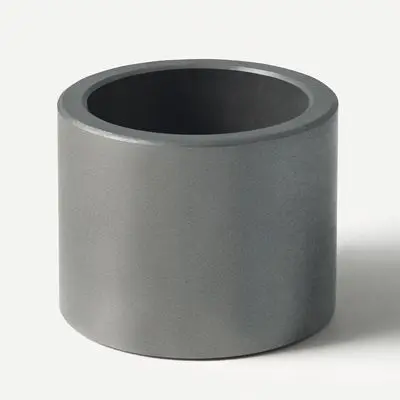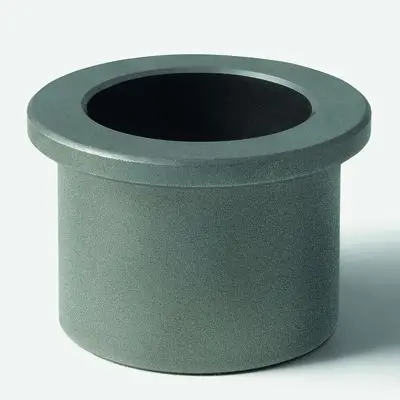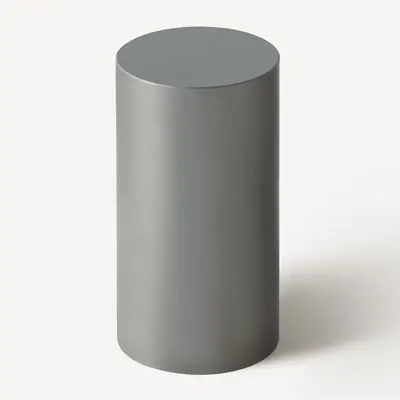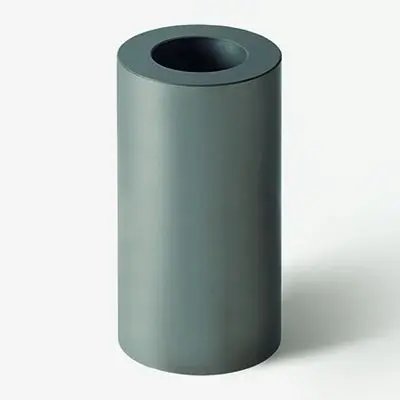
SELF-LUBRICATING SINTERED IRON BUSHINGS
Self-lubricating sintered iron bushings suitable for high load. Good friction factor. Silent working. Reduced tolerances.
Our Bearings and bushings produced in Italy and Europe refer to DIN 30910-3:2004-11 for the definition of technical and chemical standards.
Self-lubricating sintered iron bushings are mechanical components used to reduce friction and wear in various industrial applications. They are manufactured through a sintering process, where powdered iron is compressed and heated to a high temperature until the iron particles melt together, creating bonds between them. During the cooling process, pores are formed and subsequently saturated with a solid lubricating material, such as graphite or molybdenum disulfide.
Self-lubricating sintered iron bushings have several characteristics and advantages:
1. Autonomous lubrication: thanks to the intrinsic lubricating material inside the pores, these bushings can provide autonomous and continuous lubrication for a long period of time, reducing friction and wear between moving surfaces.
2. Wear resistance: The solid lubricating material present in self-lubricating sintered iron bushings acts as a protective layer, reducing wear and extending the service life of the bushings.
3. Friction reduction: The presence of solid lubricant helps reduce friction between contacting surfaces, allowing for smoother and quieter operation of machines or equipment where the bushings are used.
4. Corrosion resistance: The iron used in the sintering of self-lubricating bushings is generally corrosion-resistant, making these bushings suitable for corrosive or humid environments.
Self-lubricating sintered iron bushings are widely used in a variety of sectors including:
1. Automotive industry: they are employed in bearings for engines, transmissions, and suspensions, reducing friction and wear during operation.
2. Energy industry: They find application in wind turbines, generators, pumps, and other mechanical equipment used in the energy industry, enabling efficient operation and reducing maintenance interventions.
3. Industrial machinery: they are used in machine tools, compressors, printers, metalworking equipment, and other industrial machinery to reduce friction and prolong operating life.
4. Marine sector: They are used in marine applications such as drive shafts, rudders, and pumps, where the aqueous environment requires corrosion resistance and reliable lubrication.
|
PLEASE FILL THE FORM for INFORMATION ON CPS PRODUCTS
|



